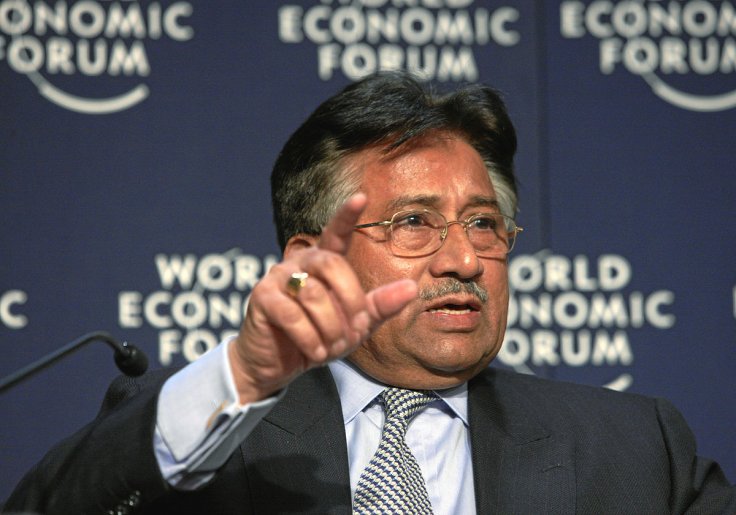Former Pakistan President Pervez Musharraf was sentenced to death on charges of high treason on Tuesday. The Pakistani court found him guilty of subverting the constitution. After Musharraf declared the emergency, civil liberties were suspended in the country between November 2007 and February 2008, and several people including judges were held in detention.
Musharraf seized power in a 1999 coup, dethroning then prime minister Nawaz Sharif. The high treason case was registered against Musharraf in December 2013, when Nawaz Sharif-led PML-N government returned to power.
The court handed the verdict to the former military general in absentia. Musharaff is currently in Dubai, United Arab Emirates, undergoing medical treatment. "Pervez Musharraf has been found guilty of Article 6 for violation of the constitution of Pakistan," a government law officer said, according to Reuters.
I have served my country for 10 years. I have fought for my country. This [treason] is the case in which I have not been heard and I have been victimised

First military ruler to get the death penalty
Musharraf is the first military ruler from Pakistan to get the death penalty. It remains to be seen what the future holds for Musharraf, 76, as he had left the country in 2016 for medical treatment.
The death sentence was given by a three-member bench of the special court headed by Peshawar High Court Chief Justice Waqar Ahmad Seth. The high treason case stems from the imposition of emergency in 2007 and the suspension of the Constitution. The ex-general was indicted in the case in 2014.
Musharraf, who is currently in Dubai, has spent much of his time abroad after he quit in 2008. Musharraf issued a statement from his hospital bed last month stating that he was not given a fair hearing in the case. "I have served my country for 10 years. I have fought for my country. This [treason] is the case in which I have not been heard and I have been victimised," he said in the video recording.
Pakistan's High Treason Act
Musharraf had earlier pleaded with the federal government to stay the trial in the treason case before the special court. The Lahore High Court had issued a notice to the government over this request. Musharraf had asked the High Court to declare the proceedings against him as unconstitutional.
As per Pakistan's High Treason (Punishment) Act, 1973. the punishment for high treason is death or lifetime imprisonment. "Any person who abrogates or subverts or suspends or hold in abeyance, or attempts or conspires to abrogate or subvert or suspend or hold in abeyance the Constitution by use of force or show force or by any other unconstitutional means shall be guilty of high treason," Article 6 of the Constitution states.
Musharraf can appeal
Musharraf is allowed to launch an appeal in the Supreme Court. In case the Supreme Court upholds the verdict, the ailing military ruler can seek the pardon of the President. The president has the constitutional right to pardon a convict under Article 45.








